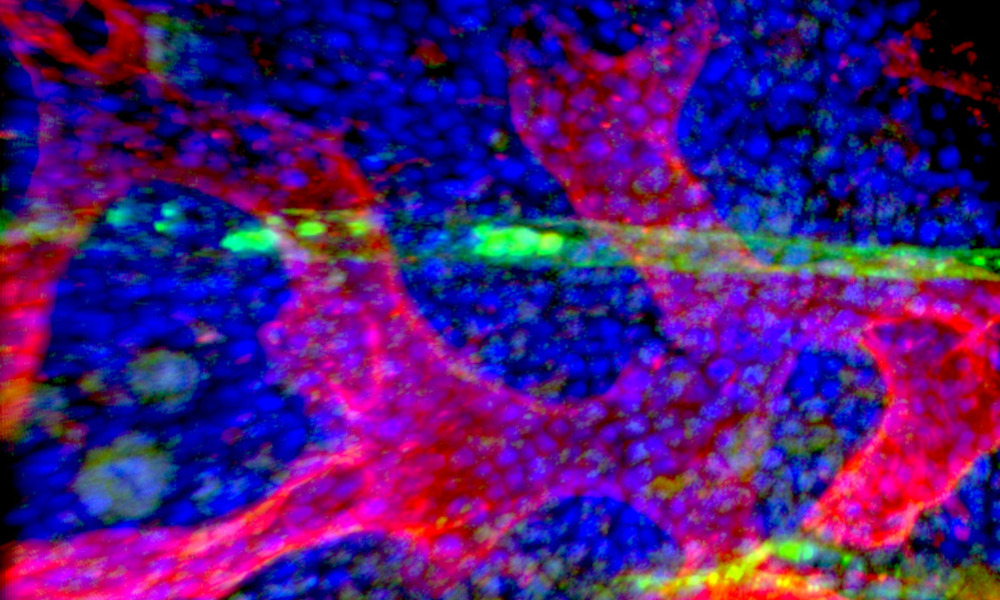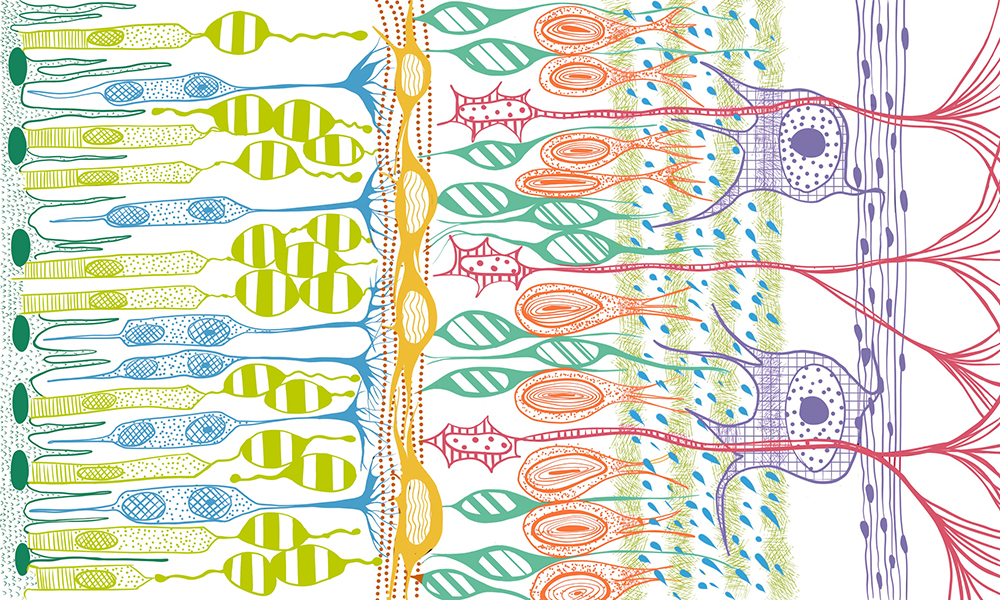
Delving deeper into the human genome
EMBL research and tools advance understanding of genetic underpinnings of human disease.

In 2021, EMBL continued developing new approaches to disentangle the genetic complexity of human diseases, yielding new findings, methods, and tools for the scientific community.
This year, EMBL saw updates to the human reference genomes created over a decade ago. The Korbel group co-initiated the reconstruction of the most diverse set of reference human genomes ever assembled, including population samples from Africa, North America, East and South Asia, and Europe. Furthermore, EMBL-EBI researchers delved into new sequencing technologies to prove that state-of-the-art long-read sequencing technologies could provide a much more accurate human reference genome.
“Our work to generate a more diverse set of human reference genomes represents a remarkable achievement for the discovery of genetic variation in humans, which can now be studied much more comprehensively, leading the way to better find disease-causing genes,” said Jan Korbel, EMBL Group Leader.
Age is a factor that adds to the complexity of human diseases, and in 2021 EMBL researchers analysed UK Biobank data to reveal that several diseases whose onset occurs at the same age are genetically similar. This suggests they may share a common cause.
Another powerful tool that opened doors for diverse applications was the advancement of single-cell RNA analysis. This approach enabled researchers to find correlations between genetic variants and altered gene expression in human induced pluripotent stem cells (iPSCs). The study unveiled thousands of genetic variants, many of which are linked to diseases.
Researchers also developed MutaSeq, a new single-cell sequencing tool that could help identify new cancer-fighting drugs. MutaSeq enables researchers to distinguish individual cancer stem cells – major drivers of cancer relapse – from mature cancer cells and healthy stem cells.
By utilising single-cell sequencing and honing collaborations, EMBL researchers continue to help understand the genetic basis of diseases, such as cancer.

“Nowadays, it’s research collaboration advancing science — so gratifying to witness how a range of expertise and datasets from around the world combine and yield new insights.”
— Nina Habermann, Project & Communications Officer, Korbel Group
Explore more 2021 EMBL genetic variation research highlights:
References
Ebert P et al. (2021). Haplotype-resolved diverse human genomes and integrated analysis of structural variation. Science, 25 February 2021. DOI: 10.1126/science.abf7117
Donertas MH et al. (2021). Common genetic associations between age-related diseases. Nature Aging, 08 April 2021. DOI: 10.1038/s43587-021-00051-5
Bonder MJ, Smail C et al. (2021). Identification of rare and common disease variants using population-scale transcriptomics of pluripotent cells. Nature Genetics, 4 March 2021. DOI: 10.1038/s41588-021-00800-7
Jerber J, Seaton DD, Cuomo A et al. (2021). Population-scale single-cell RNA-seq profiling across dopaminergic neuron differentiation. Nature Genetics, 4 March 2021. DOI: 10.1038/s41588-021-00801-6
Velten L et al. (2021). Identification of leukemic and pre-leukemic stem cells by clonal tracking from single-cell transcriptomics. Nature Communications, 1 March 2021. DOI: 10.1038/s41467-021-21650-1

